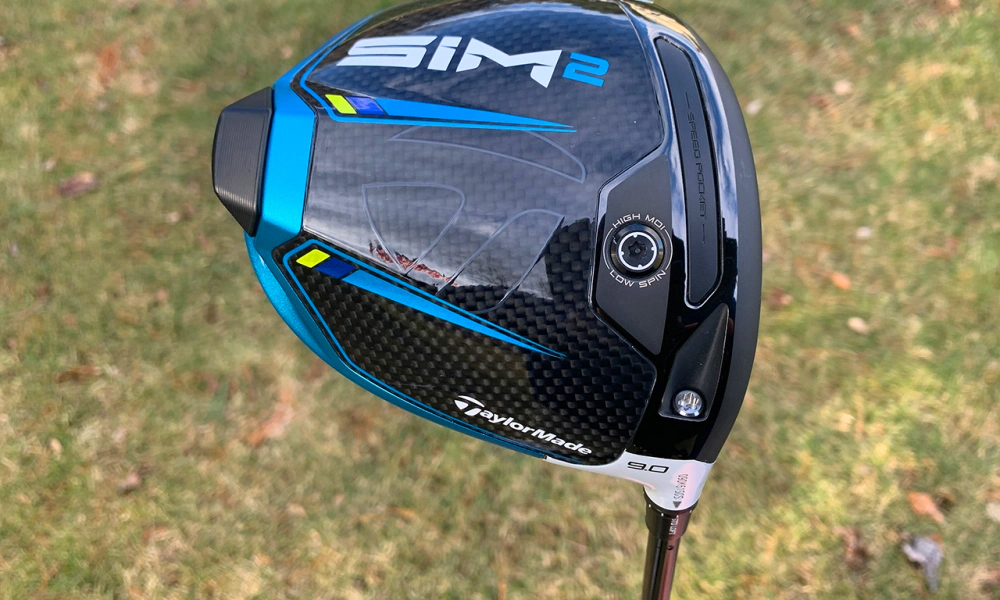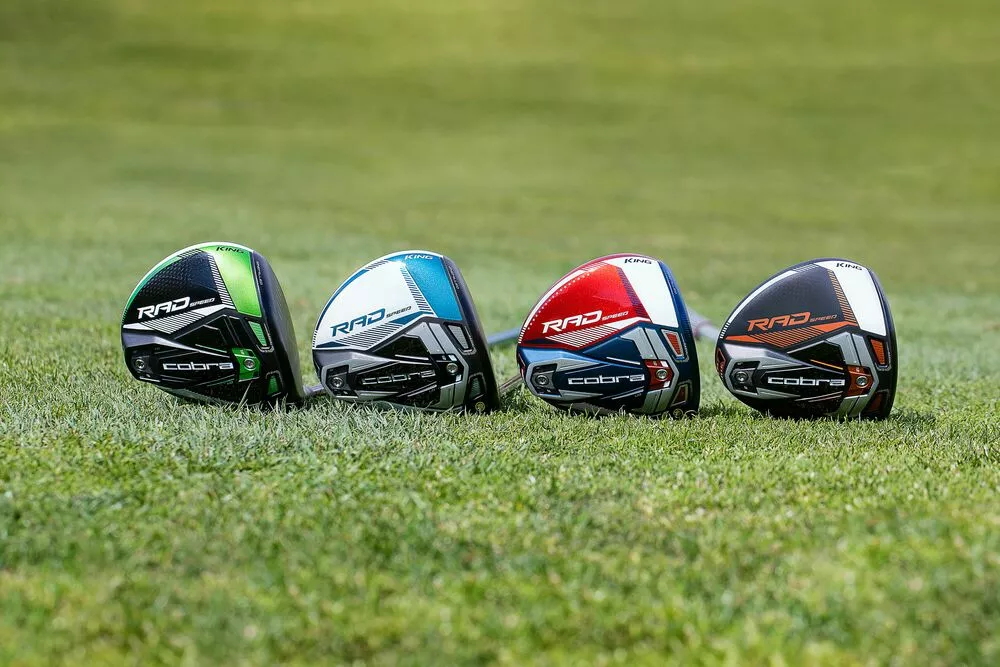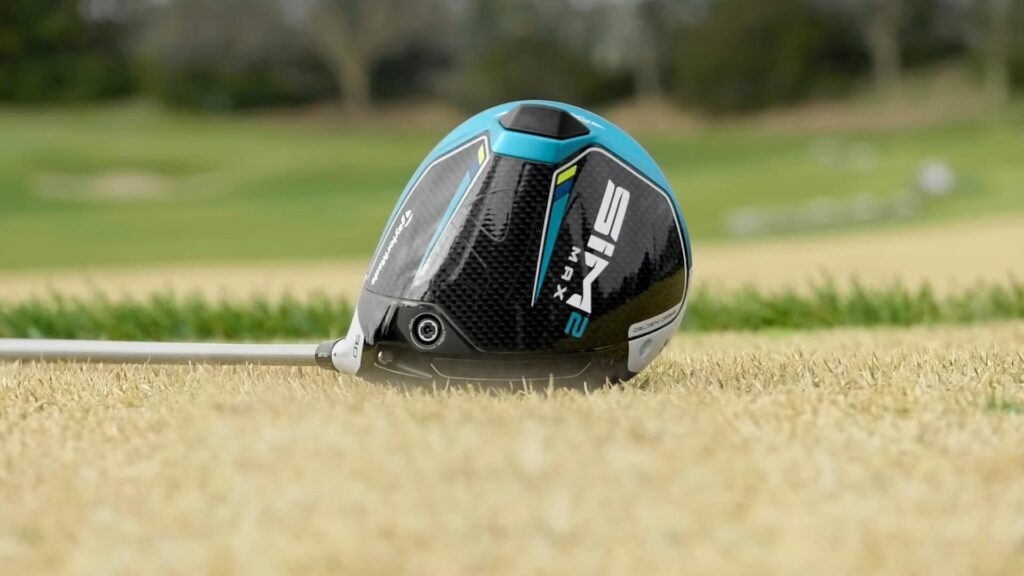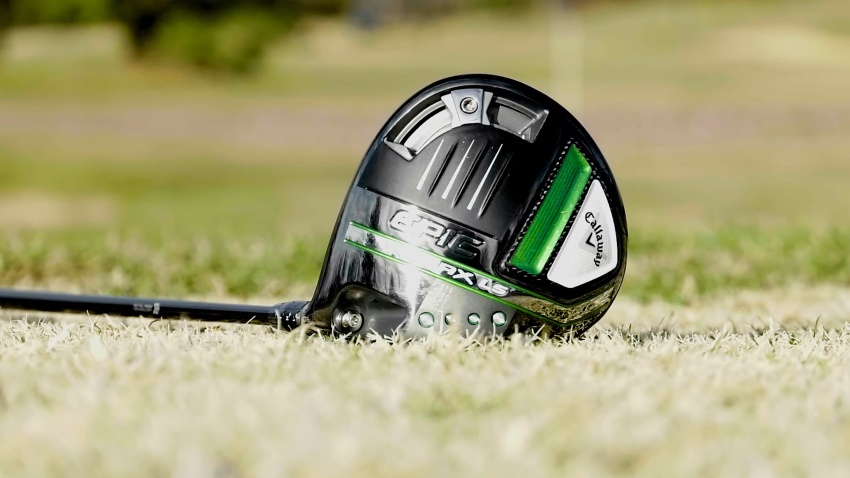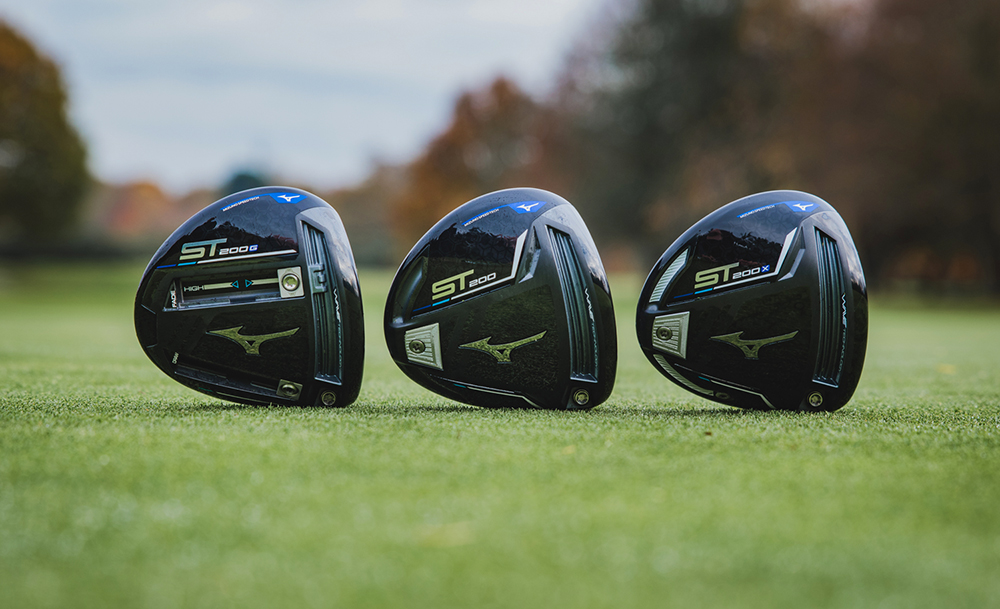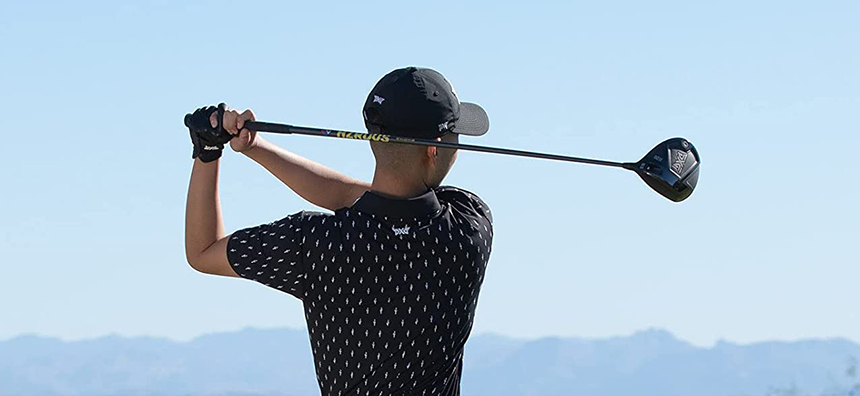
Having the right driver can make or break your golf game. It’s the difference between making the green in two strokes on a par four or spending multiple strokes pushing the ball further down the fairway. With driver technology advancing rapidly year after year, now is a great time to invest in a high-quality driver.
To help you find the best driver for beginners, we looked at dozens of top models. We considered how much loft they provide, which is closely related to optimizing for your swing speed. We also considered clubhead size and forgiveness, which modify how much control you’ll have over the way your golf ball flies. Finally, we looked at important details like shaft flexibility and adjustability, which impact how comfortable you’ll feel swinging your driver. From all that, we picked out the eight best golf drivers for beginners – continue reading for our full reviews!
Other features: adjustable loft; T2C Triaxial Carbon Crown; TA15 Super Strength materials; internal draw bias weighting
The B21 is part of Callaway’s famed Big Bertha driver series, with a few adaptations for beginner golfers. This club offers a massive sweet spot and a high forgiveness to help you get better results with less work. The club uses an AI-designed flash face, which is designed to launch the ball perfectly even if you miss the center of the club with your strike.
The clubface is available in three different loft angles up to 12.5 degrees, but you can also use the included hosel to further adjust the angle. The club is also designed to keep your ball’s spin to an absolute minimum, helping you consistently land your ball in the middle of the fairway.
What we liked: One of the most exciting things about this distance drivers for beginners is that it’s built to eliminate slice. Although the club has a relatively flexible graphite shaft, the face is engineered to stop the ball from curving left on you. Like everything else about this club, that ensures you end up on the fairway every time.
What could be better: The weight of the club head isn’t adjustable. That can make it harder to use this club as you improve your technique and want to ramp up your swing speed.
Other features: high-MOI shape with larger address footprint; Speed Step technology; expanded Jailbreak Effect
The Callaway Golf Rogue driver is an all-around excellent beginner’s club. It’s fairly inexpensive, so you won’t feel bad upgrading as your golf game improves. It’s available with senior and ladies shaft flexes, so you can get more control over your swing as you’re learning. Plus, you can drop to a 45-inch shaft to trade distance for precision in your swings.
The driver has a carbon composite clubface surface, which helps to keep the center of gravity towards the back of the club. The clubface is quite large – in fact, it’s Callaway’s largest carbon composite crown surface. The driver is built to be highly resistant to torqueing if you miss the center of the face, which makes it extremely forgiving.
What we liked: While this club makes a few adjustments that limit club speed in favor of control, it can still help you get distance out of your tee shots. The driver includes Callaway’s Jailbreak and X-Face VFT technologies, which together promote higher ball speeds and longer distance drives.
What could be better: Users noticed that while this club offers decent swing control, it doesn’t do much to prevent slice. There’s no way to adjust the side angle of the head, either.
Other features: flexible Hammerhead slot; Speed Injected Twist Face; aerodynamic shaping design
If you’ve been struggling with a slice – a strong left-ward curve as your ball flies through the air – then this could be the best golf driver for you. You can modify the clubface as much as you need until your drives are flying straight down the fairway.
Quality is also a compelling reason to opt for the M4. Every driver’s head is individually tested by TaylorMade and injected with tuning resin to optimize swing speed and control. That, combined with the low center of gravity, helps this driver hit the ball farther even if you have a slow swing speed.
What we liked: The flexible Hammerhead slot and Injected Twist Face technology work together to dramatically increase the forgiveness of this driver. Even if your swing is off, you’ll still achieve a relatively straight and far drive with this club.
What could be better: This club doesn’t come with adjustable weights, so there’s no option to modify the swing speed or give the club a different feel.
Other features: A.I.-designed Flash Face SS20; Jailbreak + T2C Triaxial Carbon Crown; High-strength FS2S Titanium construction; two interchangeable weights (14g and 2g)
The Mavrik club from Callaway is designed to be extremely flexible to grow with you as your swing improves. The face angle is adjustable and it comes with two interchangeable weights so you can swing faster or with more control. The club is also available in multiple shaft lengths and flexes.
Another plus to this club is that it uses Callaway’s Jailbreak technology with a T2C triaxial carbon crown. Thanks to that design, the ball jumps off the clubface faster and the face itself has a higher moment of inertia. In effect, the sweet spot is huge relative to the clubface.
What we liked: This club is made with FS2S titanium, which is several grams lighter than standard titanium. That makes the club faster and more forgiving.
What could be better: This club helps you get distance out of your swing, but it doesn’t do much to prevent slice. Users noted that this club can send your drives veering left if you’re not careful to adjust your swing.
Other features: Turbocharged Cup Face for higher COR; deep weighting for increased MOI and speed; ultralight hosel
The Launcher HB Turbo is our favorite Cleveland golf driver for beginners. This club offers incredible ball distance thanks to several features that increase swing speed. The Turbocharged Cup face and deep weighting help maximize the club’s impact with the ball. It also plays an important role in ensuring that as much energy as possible is transferred from the driver to your golf ball upon impact.
In addition, the shaft design was crafted specifically for this club. It’s counterbalanced to push the center of gravity up towards the grip. That increases the club’s forgiveness and dramatically expands the sweet spot. Plus, the hosel is extremely light so that it doesn’t add weight to the club where you least want it.
What we liked: Users reported adding up to 30 yards per drive just by switching to this club. The ball launches extremely cleanly off the Turbocharged Cup face and feels smooth through the whole drive.
What could be better: The grip on this club is surprisingly slick. Many users didn’t mind, but some preferred to have it regripped for more control.
Other features: low spin/ workability; 360 Carbon Wrap Crown; front to back CG adjustability; high MIO design
If your swing speed is relatively low, the King Speedzone Extreme from Cobra Golf can help you get the distance you need. This driver features a CNC-machined Infinity Face, which offers power that few other beginner drivers can match. The club also has a custom-built T-bar Speed Chassis, which helps deliver maximum power from the clubface to your ball.
Despite its power, this club is very forgiving. It features a high moment of inertia that prevents the club from torqueing if you strike away from the club’s center. At the same time, the clubface keeps ball spin to a minimum so that it travels as straight as possible down the fairway.
What we liked: We appreciate how much effort Cobra put in to keeping the center of gravity back and low in this club. The club body is covered 50% of the way around with a lightweight carbon wrap crown. That saves 25 grams of weight and distributes the bulk of the club’s weight further back, giving you more power.
What could be better: While there’s a lot to like about this driver, it offers very little in terms of adjustability. You cannot add or remove weight from the club head, and the loft angle is less adjustable than most comparable drivers.
Other features: superlight design; three-piece [K]omposite crown; Wilson Staff Lamkin Crossline Genesis Grip; Peak Kinetic Response
This composite driver from Wilson is perfect for getting your swing speed up. The club comes with a flexible graphite shaft and a lightweight head. That is thanks to the three-piece [K]omposite crown, which also helps reduce vibration when you connect with the ball.
Much of the club’s weight is low and back, helping you to get more momentum and better power transfer out of your swing. Many users noticed the difference, finding that they were able to get more distance and a more controlled swing out of this club.
What we liked: This club features Peak Kinetic Response, which optimizes forgiveness and ball speed. Beginners especially will like the 13-degree options, since it keeps weight back and towards the heel.
What could be better: The loft angle of this club isn’t adjustable at all. Unfortunately, that means you won’t be able to switch to a more horizontal drive as your swing improves.
Other features: 2-degree loft sleeve; Aerodynamic Asymmetric sole and Inertia Generator; Speed Injected technology; Twist Face technology; multi-material construction
This beautifully engineered driver from TaylorMade is a great choice for beginners who need help keeping the ball straight down the fairway. It offers Twist Face technology, which includes a large face area and a corrective clubface angle to help you overcome mishits.
At the same time, this club is optimized for distance. The aerodynamic asymmetric sole helps improve the speed of the driver head through your swing. A rear weight increases the forgiveness of the club, ensuring that you hit the sweet spot even if your swing is less than perfect.
What we liked: The SIM MAX drive is available in several different shaft lengths, including a 45.5-inch length. This is great for beginners since it can offer more control over your swing. Thanks to the club’s sole design, it won’t slow down your strike speed by much, either.
What could be better: The adjustments on this club don’t offer a huge amount of leeway. You can very slightly correct the feel of the club, but don’t expect any big changes as your swing improves over time.
Now that you’ve read more about our top eight picks for beginner golfers, how do you choose the driver that’s best for you? In our buying guide, we’ll cover everything you need to know about the various features and components that go into a driver’s design.

The loft of a driver indicates how low or high the golf ball will fly off of your driver. A club with a lot of loft will send the ball in a high arc through the air, while a club with low loft will hit it on a lower trajectory across the fairway.
Loft is determined most by the angle of your driver’s clubface. Most drivers have a clubface angle of between 8 and 12 degrees, although more extreme drivers are available – for example, the Callaway Golf Rogue driver is available with a 13.5-degree loft angle. Most modern drivers, including all of the models we reviewed, are available in multiple clubface angle options.
Generally, beginner golfers will need more loft to get good ball placement down the fairway. That’s because they have slower swings, and need to send the ball higher to help it carry further. Most high handicappers will want to choose a driver with a loft of at least 10 degrees, and 12 or higher may be best when you’re just starting out.
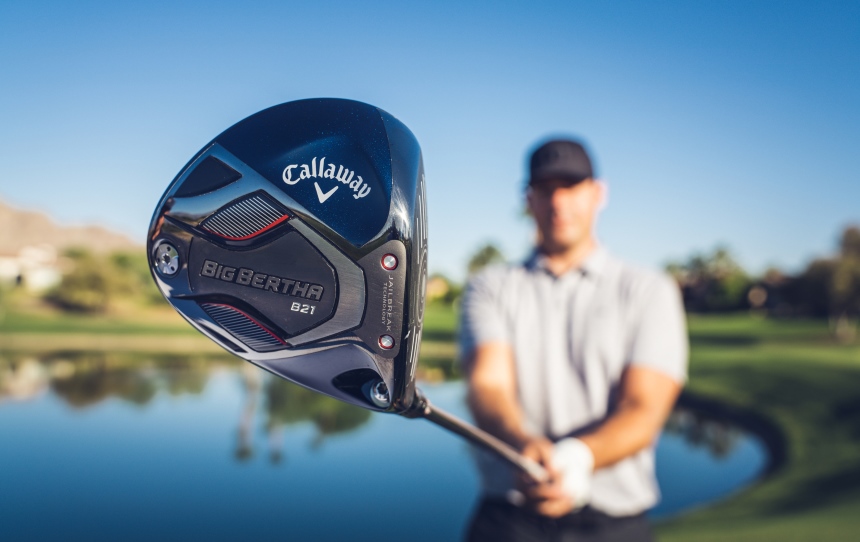
Most beginners will prefer a driver with a clubhead size towards the upper end of that range. That’s because a larger clubhead is more forgiving, as there is more surface area to connect with the golf ball. Smaller clubheads provide more control over your strike, so they are often preferred by more experienced golfers.
The shaft is an extremely important component of your driver. Most drivers are available in any of several different flex ratings: regular, stiff, extra stiff, ladies, senior, and double-extra stiff. Ladies and senior flex ratings are less stiff than regular.
The flex of your shaft has a big impact on how your ball flies. A less stiff shaft will cause the golf ball to move to the left (for a right-handed golfer) as it flies through the air, and it will give the ball a higher trajectory. Stiffer shafts will launch the ball lower and will keep it flying straight or even allow it to curve slightly right.
It’s also important to think about the length of your shaft. This is affected not so much by your height, but rather your ability to control your driver. A shorter shaft, around 43 inches, will give you more control over your swing since the clubhead has less distance to travel.
A longer shaft, up to 46 or even 48 inches, is less easy to control. The advantage of a longer shaft for more experienced golfers is that it increases your swing speed, allowing your ball to travel further.

Titanium drivers can have bigger clubheads without taking on extra weight. That means you can swing faster with a broader clubface, so the sweet spot of your driver is bigger. Composite drivers typically use carbon or tungsten in addition to titanium. These drivers may have slightly different feels than an all-titanium driver. Ultimately, what material or combination of materials is best for you comes down to personal preference.
Forgiveness, also known as moment of inertia, refers to a club’s resistance to twisting when it impacts the ball. The more forgiving a club is, the less likely it is to twist when you strike the ball away from the clubface’s center. Essentially, a more forgiving club has a bigger sweet spot, so it’s ideal for beginners.
Many modern drivers are highly adjustable, allowing you to play with your club’s features until it’s dialed in just right. For example, the Callaway Mavrik Max driver comes with a set of interchangeable weights that you can use to modify how the club is weighted and how it strikes the ball. Other clubs allow you to change the angle of the clubface to get more or less loft, or to change how the club sits relative to the ground.
Adjustability can be both a blessing and a curse for beginners. On the one hand, it gives you the option to modify your club over time so it can grow with you as you improve. On the other hand, it’s easy to focus on making adjustments to your club instead of focusing on improving your technique.
Unfortunately, drivers aren’t cheap – even entry-level models for beginners. Expect to spend at least $300 for a value driver like the Wilson D7 or the Calloway Rogue drivers. Higher-end beginner drivers like our Editor’s Choice Callaway Big Bertha B21 can cost up to $500.
Our three overall favorite drivers for beginners are the Callaway Big Bertha B21, the TaylorMade M4, and the Callaway Golf Rogue drivers.
The TaylorMade M4 driver is as forgiving as possible for beginners. It features corrective face angle and low center of gravity. Every head is individually tested by TaylorMade and injected with tuning resin to optimize swing speed and control
The Rogue driver is one of the best cheap drivers for beginners, offering a massive sweet spot and Callaway’s Jailbreak technology at a very affordable price point. The club also comes in a wide range of shaft length and flex options.
We think the Callaway Big Bertha B21 is the overall best driver for beginners. It features a highly adjustable loft, a low center of gravity, and a huge sweet spot to help you connect with every drive. Plus, it’s built to cut down on slice so that your ball lands in the middle of the fairway every time.
